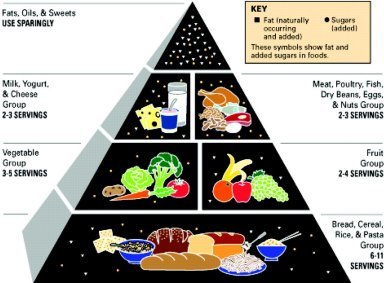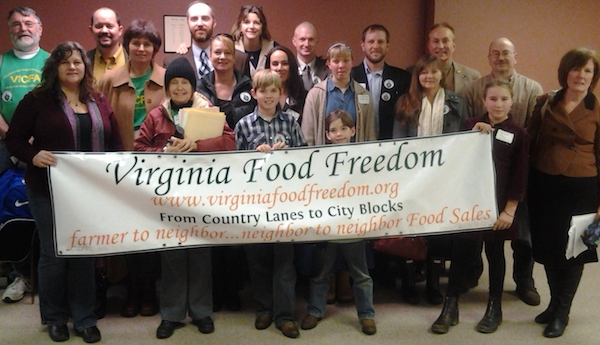#9 Story
An Outsider’s Inside View of Bay Creek’s Beach Club

Forget the beach — the new Bay Creek facility is really a large, impressive gym (Wave photos)
By GEORGE SOUTHERN
Cape Charles Wave
January 27, 2014
When I moved to the Town of Cape Charles four years ago, I didn’t realize that the majority of the Town would be off-limits to me. Sure, I knew that Bay Creek was a gated community, but I didn’t think I would be banned from riding my bicycle over there.
That’s because, as a college student in the 1970s, I worked construction one summer on Hilton Head Island, where Sea Pines Plantation looks like it must have been the prototype for Bay Creek. Cars entering Sea Pines had to have a pass, but bikers and pedestrians could waltz right through. That was before 9/11, of course – maybe things have changed now.
Nevertheless I was shocked to learn of the “unneighborliness” of Bay Creek. German guests at our vacation rental rode bikes over to the gate and naively said they just wanted to “look around.” They were turned away, of course, not knowing the magic words “Coach House Restaurant.” Even my new weekender neighbors, a doctor and his professional wife, also on bikes, were turned away. [Read more…]
In Defense of Meat and Other Animal Products
By KAREN GAY
Wave Columnist
May 4, 2015
This contin ues my previous article about the Weston A. Price Foundation’s dietary principles. I’ll discuss the Foundation’s belief that health is best found in a diet of unprocessed, traditional foods containing some sort of animal product, be it fish, shellfish, fowl, sea mammals, eggs, milk and milk products, or even reptiles or insects. There has been some discussion in the Wave regarding the virtues of a vegetarian diet, and I’d like to provide a gentle rebuttal to those points of view.
ues my previous article about the Weston A. Price Foundation’s dietary principles. I’ll discuss the Foundation’s belief that health is best found in a diet of unprocessed, traditional foods containing some sort of animal product, be it fish, shellfish, fowl, sea mammals, eggs, milk and milk products, or even reptiles or insects. There has been some discussion in the Wave regarding the virtues of a vegetarian diet, and I’d like to provide a gentle rebuttal to those points of view.
Weston A. Price was a dentist born in 1870 who noticed that most people who had serious dental problems also had degenerative health issues. Over the course of 10 years he travelled to study isolated indigenous societies to determine the factors responsible for good dental health. Dr. Price visited tribes in Alaska, Africa, Australia, New Zealand, Peru, and even sequestered villages in Switzerland. After analyzing the foods used by these societies he saw that in comparison to the American diet of the 1930s, they provided at least four times the water soluble vitamins, calcium, and other minerals, and at least 10 times the fat-soluble vitamins — from animal foods such as butter, fish, eggs, shellfish, organ meats, and animal fats.
In his travels he had been hoping to find a society which demonstrated good health solely from fruits and vegetables, but he was disappointed. In his book, Nutrition and Physical Degeneration, he concluded ”As yet, I have not found a single group of primitive racial stock which was building and maintaining excellent bodies by living entirely on plant foods. I have found in many parts of the world most devout representatives of modern ethical systems advocating restriction of foods to the vegetable products. In every instance where the groups involved had been long under this teaching, I found evidence of degeneration in the form of abnormal dental arches to an extent very much higher than in the primitive groups who were not under this influence.”
What about the cruelty issue?
My neighbor, Wayne Creed, spoke eloquently in the Wave of the confined animal feeding operations that produce most of our meat available in traditional grocery stores. I support Wayne in urging people to boycott meat from animals that have not been treated humanely. However, everyone’s definition of what is humane is different. I believe that meat animals should be grown in the natural environment in which they thrive and in populations that do not overwhelm the natural resources of the land. So, to me, this means that cattle are raised in pastures with plenty of fresh green grass, hay, and shelter in the winter. Chickens should be outdoors in the sun pecking for insects, and hogs should free range under the shade of trees where they can dig for tubers and insects. [Read more…]
COMMENTARY
Rezoning Can Help Schools Desperate for Funds

RANDALL PARKS
By RANDALL PARKS
Vice Chairman, Northampton School Board
April 6, 2015
I feel that there are many citizens of Northampton County who like me are somewhat befuddled as to the rezoning issues facing us. Frankly it is difficult for me to determine which are real concerns and which are simply of the “hysterical” variety designed to frighten the voters. Attending one Board of Supervisors meeting, I heard one concerned lady tell of the possibility of instead of the present limitation of 50 homes in an area, the changes would allow for 1,200. I wondered where those 1,200 families would come from and why they would move here.
I seriously doubt that a single person can be found who does not want the protection of our environment to be of utmost concern, yet some of the dire warnings seem to be designed to scare us instead of being reasonable concerns as to our future. Obviously real “by right” concerns need to be addressed, but some of those raised by the opponents of any rezoning are, well — ludicrous. Our Supervisors are attempting to enlarge the tax base of our community as they understand the future needs of our county and are doing their best to make this happen. They have held innumerable public work sessions dealing with the rezoning issues yet are being accused of making decisions in secret. It is apparent to me that there are people living in our community who oppose any changes whatsoever.
Our world here is not simply a society peopled by members of the upper middle class and and the very rich. There are numerous citizens who work in dead-end jobs earning the minimum wage struggling to get by on a week-to-week basis. Their children attend our schools which should offer a possible way out of their circumstances but are unable to do so because of lack of community support. Middle and high school students are “housed” in a building both too small and most importantly simply crumbling around them.
Previous Boards of Supervisors have concentrated on building new courthouses, jails, offices for the bureaucrats, and social services structures — all the while ignoring the needs of our children. Seven years ago engineers alerted our then Supervisors of the impending situation with the potential failure of the walls of our high school, yet instead of dealing with the situation, they chose to use a band-aid approach which would last only a short time. Now we are faced with pouring more money down a rat hole in an attempt to make it less dangerous for our children. [Read more…]
ALTERNATIVE TABLE: Fat and Scientific Shenanigans
By KAREN GAY
Cape Charles Wave Columnist
March 30, 2015
In my article of last week, I featured the Weston A. Price Foundation (WAPF) and described how their recommended traditional diet helped me lose 50 pounds over nine months by changing my fat intake to greater than 30 percent of calories coming mostly from saturated and monosaturated fats.
 As I lost my food cravings I began to do research on fat and its impact on one’s body. How could it be that for over 40 years the U.S. Department of Agriculture (USDA) was a strong proponent of low fat diets?
As I lost my food cravings I began to do research on fat and its impact on one’s body. How could it be that for over 40 years the U.S. Department of Agriculture (USDA) was a strong proponent of low fat diets?
In 1968, after seeing an image of a child who had died of starvation in the CBS documentary, Hunger in America, George McGovern became the chair of the “Select Committee on Nutrition and Human Needs” with the goal of wiping out hunger and malnutrition in the United States. In 1977 the Select Committee published the “Dietary Goals for the United States” after hearing Dr. Ancel Keys and other supporting researchers speak about the link between saturated fat and cholesterol consumption.
From 1972 to 1973 and concurrent with the Select Committee, the American Heart Association, American Medical Association, and the National Academy of Science developed the following recommendations:
- Americans’ cholesterol is too high;
- We should measure our cholesterol in medical examinations;
- People considered as “at risk” should receive appropriate dietary advice;
- At risk Americans should reduce their intake of saturated fat by substituting polyunsaturated vegetable oils;
- Modified and ordinary foods (to support the ingestion of vegetable oils) should be available in the marketplace; and
- More studies should be performed to determine if lowering cholesterol can reduce chronic heart disease.
 The piling on the bandwagon by these organizations led to the 1992 USDA Food Pyramid that most of us remember so well.
The piling on the bandwagon by these organizations led to the 1992 USDA Food Pyramid that most of us remember so well.
So how did all of these organizations arrive at these conclusions? I believe it was the work of Ancel Keys in the 1950s that started the idea that saturated fat led to the increase in heart disease. He noticed that death from heart disease dropped in areas where food rationing had been in place due to WWII and increased in industrialized areas of the world. Keys created graphs using food intake data and mortality statistics from the late 1940s using six countries: Japan, Italy, England, Australia, Canada, and the USA. The data appeared to show a correlation between the ingestion of fat and the increase in heart disease. We now call this the Diet-Heart Hypothesis which puts forward the idea that saturated fat causes cardiovascular disease (CVD) by raising blood cholesterol. He presented a graph at the 1955 World Health Organization conference that mapped fat intake to each country’s rate of death from heart disease. [Read more…]
COMMENTARY
Eastern Shore ‘Too Special to Drill’? –Nope

EXHIBIT A: The Chesapeake Bay at Cape Charles.
By JAY FORD
Virginia Eastern Shorekeeper
February 16, 2015
As part of the Administration’s announcement of new leases for offshore drilling, Secretary of the Interior Sally Jewell continually stated, “Some places are too special to drill.” Apparently, Virginia and the Eastern Shore didn’t make the cut.
Virginia’s Eastern Shore is the largest remaining stretch of coastal wilderness on the entire eastern seaboard of the United States. Additionally, the Eastern Shore has been recognized by the United Nations as an International Biosphere Reserve, and as a Western Hemisphere Shorebird Network Site. There is no place on earth like Virginia’s Eastern Shore; the very definition of special.
Less than five years since the BP disaster overwhelmed the Gulf Coast, our leaders are ready to open our region to the same risks. Our culture, our economy, and our quality of life are inextricably linked to the waters of the Atlantic and the Chesapeake Bay. Our booming aquaculture industry, fisheries, and tourism all depend on clean waters and are susceptible to the slightest changes. Even if we never had a major spill we would have tarballs on our beaches, and drilling fluid, toxic metals, and metal shavings in our ocean as part of the standard operating practice for an offshore rig.
If a spill were to occur, our very way of life on Virginia’s Eastern Shore would be forever altered. Researchers on the Gulf Coast are still trying to quantify the long term damage done to that region’s ecology as a result of oil and the subsequent dispersants. Mutations, deformed hearts, lesions, and sterility have been documented in staggering numbers throughout the fish population. Corals were wiped out, taking with them millenniums old ecosystems. Shrimp with no eyes and/or eye sockets were reported. Petroleum products and oil dispersant has been found in the shells of blue crab larvae and pelican eggs. When asked to put a dollar figure on the ecological damage many researchers had but one answer: “Priceless.” [Read more…]
COMMENTARY
Resounding Defeat for Home-Prepared Food

Virginia Food Freedom lost big in Richmond — but they’ll be back to lobby again next year.
By KAREN GAY
Cape Charles Wave
February 9, 2015
If you read my previous two articles about Virginia House Bill 1290 you may be wondering how it all turned out. This bill was designed to exempt food prepared or processed in a private home or farm from government inspection provided that the food is sold directly to the end consumer and is labeled with the producer’s name, address, and product ingredients and the disclosure “NOT FOR RESALE — PROCESSED AND PREPARED WITHOUT STATE INSPECTION.”
The bill came up before the House Agriculture Subcommittee February 2, and the meeting was held in a smallish conference room that had standing room only. About half of the non-delegate attendees represented the Virginia Farm Bureau, the Virginia Agribusiness Council, and their supporters. The other half were mostly small farmers who traveled at their own expense to plead their case. Delegate Robert Bell from the 58th District (Charlottesville) introduced the bill. Then it was time for supporters to speak to the committee members.
The first speaker was Duane McIntyre who drove six and a half hours from Russell County. He placed cigarettes, honey, alcohol, and meat on the conference room table as examples of commonly sold items that are known to have safety issues. Bernadette Barber spoke about her son’s febrile seizures as a young child and how he recovered by eating raw honey and milk from her own cow. Store owner and a member of the Fauquier County Board of Supervisors Holder Trumbo said he believes that this bill should be passed so that small farmers can keep their expenses to a minimum and make a living.
It was clear from the opponents that their concern was the sale of raw milk — even though the bill encompasses more than that. Wearing his white lab coat, Dr. Sam Bartle of the Virginia Chapter of the American Academy of Pediatrics said there were no studies on the health aspects of raw milk (although I found several articles in the PubMed library of medical studies). Other speakers were Dr. Tom Massey of the Virginia Veterinary Medical Association, Lindsay Reams of the Virginia Farm Bureau, Brad Coperhaven of the Virginia Agribusiness Council, and Sam Towell, Deputy Secretary of Agriculture and Forestry, all of whom spoke out against raw milk in particular. [Read more…]
COMMENTARY
Legal Followup on Selling a Pie to Your Neighbor
By KAREN GAY
Cape Charles Wave
January 26, 2015
Martin Luther King Day was an appropriate day for the many advocacy organizations to come together at the Richmond General Assembly for their Lobby Day. This is a day in which individuals and groups can visit their Senator and Delegate and express their interest in pending legislation. I attended to promote a bill to allow the farmer and individuals the right to create food products in their home for sale to individuals without government intervention. These products would need to be labeled as not government inspected and could not be sold for resale.
House Bill 1290 would allow you or your neighbor to bake a pumpkin pie and sell it to someone who wants to eat home-baked goods but may not be able to make it himself. Older folks who can’t get out of the house to shop could order meals from a neighbor and provide a livelihood for a stay-at-home mom and obtain good nutrition in return. This is the lowest level of commerce, and the ability to fend for oneself in the kitchen should be available to all citizens.
The problem with Virginia regulations is that they are geared to an industrial product in which a farmer has acres of corn, soy, and wheat, or a factory that produces sterile, shrink-wrapped food. There is a whole subculture of individual entrepreneurs for whom these laws do not work. The legal bar to creating a small home-based food business is so high that many people operate small businesses illegally, or look for a low-paid job with a retailer in which they have no personal investment aside from putting in the specified number of hours.
Working for oneself empowers people to think creatively and is the historic foundation of the economy in our country. However, our laws in Virginia stifle the individual in favor of the corporation or corporate farm. I advocate a two-tier system of laws that support both small and large enterprises. This approach would provide maximum choice to individuals who could then decide for themselves what kind of food they prefer to buy. This provides opportunity for everyone.
Let me tell you about two of the people I met who support the Virginia Food Freedom bill: [Read more…]
COMMENTARY: Time to Disband the PSA
By DAVID BOYD
January 19, 2015
It is time to disband the PSA.
Originally the PSA (Public Service Authority) was tasked with developing a plan to construct a sewer which would serve Riverside Hospital in Nassawadox, in hopes of keeping that facility in Northampton County. When it became obvious we were going to lose the hospital, the PSA lost its primary purpose. At that point, Northampton County and four towns — Cape Charles, Cheriton, Nassawadox, and Exmore — revamped the PSA to handle wastewater issues in those towns and the surrounding County. The PSA would build or take over in-place wastewater treatment facilities and manage the operations and maintenance of them.
Of interest in this regard is the fact that Eastville, the County seat of Northampton County, chose not to join the PSA. Then the citizens of Cheriton found out what the monthly fee would be to treat their wastewater and they asked to be removed from the plan. Nassawadox and Exmore are no longer included in the plan in its present format either. So, this appears to have evolved into a plan to construct a pipeline to help bail Cape Charles out from its boondoggle of an overdesigned sewer plant, at the expense of Northampton County taxpayers.
The perpetrators of the PSA plan. however, claim the purpose is to attract business along Route 13, which contradicts the intent of the County Comprehensive Plan.
Since then, the PSA has spent more than $130,000 in grants and tax money with nothing to show for it. On September 16, 2013, the PSA held an informational meeting about a proposed tax district to pay for sewerage for commercial properties. At that meeting, more than 90 percent of the speakers said that they did not want a sewer pipe from Route 13 to the Cape Charles wastewater plant, or the related tax district. Immediately following those comments, the PSA voted to spend $70,000 for engineering plans for a pipe to the Cape Charles plant. Someone was not listening. [Read more…]



















